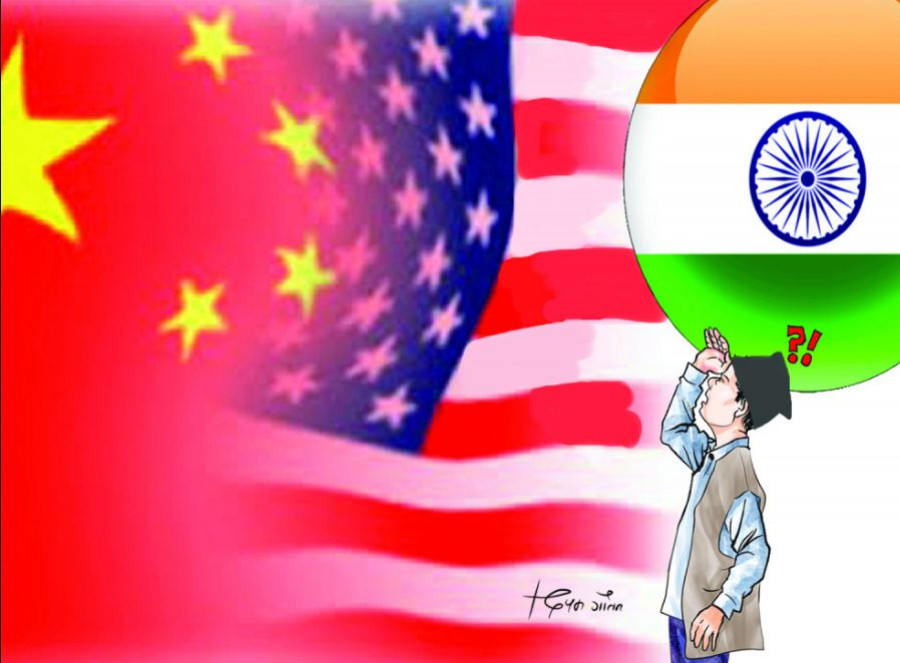Editorial
Three is a crowd
The interest of big powers in Nepal is increasing, and this is not something to be celebrated.
India’s Foreign Secretary Vinay Mohan Kwatra touched down in Kathmandu on Monday soon after a pair of high-ranking American officials came calling—and on the same day that a third US official, Deputy Assistant Secretary of State Afreen Akhter, arrived. Earlier, US Under Secretary of State Victoria Nuland and USAID Administrator Samantha Power were in town to take stock of ground realities following the formation of the Pushpa Kamal Dahal-led government on December 26. And now comes Kwatra, who is likely to extend an invitation from Indian Prime Minister Narendra Modi to Dahal to visit New Delhi soon. Reportedly, starting mid-March, a slew of high-level visits from China are also on the cards. The high frequency of these trips suggests these three big powers see events in Kathmandu in a state of flux, and want to shape things here to their advantage.
One reason these powers are so worried is that they see Nepali political leaders acting more often in self-interest than in the national interest, making them liable to enter into all kinds of unwanted deals with their rivals. For instance, the Americans are troubled by Nepal’s leftist outfits cosying up to China. The Chinese, meanwhile, see certain Nepali liberal democratic forces cuddling up to Uncle Sam. Both the US and China will seek assurance for the protection of their interests as friction between them increases, most recently over the shooting down of a Chinese “spy balloon” over mainland US. But then India does not like either of these two powers getting too involved in its backyard: While Indian opposition to the Chinese presence in Nepal is often exaggerated, New Delhi’s suspicions over growing Western activism in Kathmandu tends to be under-appreciated.
They are all trying to make some sense of Nepal’s seemingly perpetual state of political instability. In under two months since the formation of the Dahal government, it is already looking shaky. How long can Dahal hold on? If he is to go, who could replace him? Equally important, who will be the next President, the “ceremonial” head of state who increasingly shapes national politics? The heightened interest of foreign actors in what should be a purely domestic affair does not bode well.
What should be most worrying to Nepal is the increased “securitisation” of its relations with the big powers. There has been a marked spike in the interest of foreign military and intelligence agencies in Nepal. Go to a meet-and-greet in Kathmandu organised by an embassy of one of the big three powers, and you will see legions of security officials of the host country. The big powers feel that the traditional way of doing diplomacy, where the focus is on helping Nepal economically in order to keep it on their side, is no longer enough. Also, if foreign actors believe the Nepali political class is incapable of protecting their interests here, they could decide the country’s fate among themselves. (Remember India and China both bypassing Nepal on Lipulekh?) The longer the state of instability in Nepal continues, the weaker will be its sovereignty. There is no reason for Nepal to be happy about the increasing international interest in it of late.




 13.12°C Kathmandu
13.12°C Kathmandu














